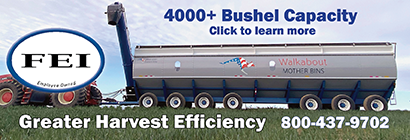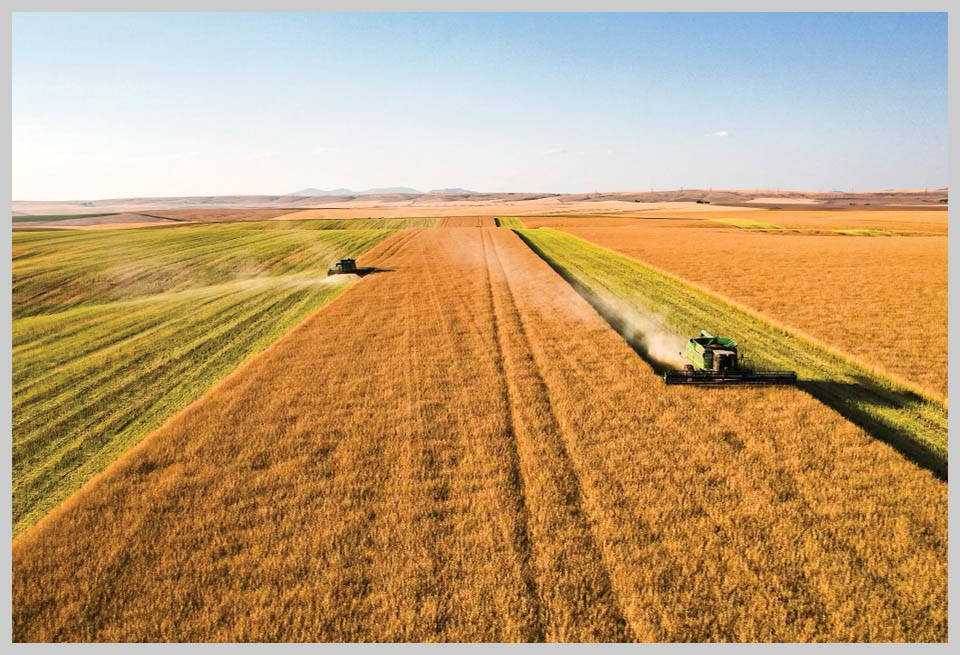Tips to help farmers capitalize on tax rates 2023 AMMO Recap
2023March 2023
By Trista Crossley
Editor

Last month, a small group of growers gathered in Walla Walla to get the latest information on taxes as part of the Agricultural Marketing and Management Organization’s 2023 schedule. The information was presented by Ryan Janke, a CPA with Leffel, Otis & Warwick, P.S.
“From a tax standpoint, not a lot has changed in the last year,” Janke said. “The big takeaway is the Tax Cuts and Jobs Act (which was passed in 2017) is set to expire after 2025. Even if our lame duck Congress does nothing, which is probably best-case scenario right now, a lot of that expires in 2025.”
The Tax Cuts and Jobs Act included significant tax cuts for individuals making less than $340,000. Janke said his firm has spent a lot of time working with growers and producers to capitalize on that tax break before it goes away.
“Tax planning does not necessarily equal tax avoidance. The only way to move forward in life is to pay some tax. We want to pay our fair share, not a penny more,” he explained. “We’ve had a heck of a lot of opportunity in the last few years and a couple more to capitalize and get our operations where we want to be.”
Janke said that although every operation is different, there are lots of opportunities to start accelerating some income in preparation for changing tax rates. The strategy he favors is two-pronged:
- Get the C-Corporation to break even. In general, Janke doesn’t like to build up any money in the C-Corp because it gets double taxed. He would rather see wealth on the personal side, which then loans money back to the C-Corp as operating capital. To reduce C-Corp income, he recommends using it to pay for fringe benefits, such as groceries/meals on the farm premises, medical premiums and expenses, and household furnishings; rent; commodity wages; and cash wages.
- Fill up personal tax brackets while rates are still favorable while reducing self-employment income tax as much as possible.
“Depending on where you are at in your operating life cycle, your career, and what your transition plans are, we might need to start thinking really hard about when or how we are going to tax some of this wealth that has been generated over a 40-year farm career,” Janke said. “There’s a lot of different tools to do that, but either way you slice it, there’s going to be some tax. The only way to not have any tax is to die or give it away. If you have the assets to do that, that’s great, but a lot of people need those assets they’ve built up for retirement.”
Janke warned about deferring tax liability too far. He said he’s seen people not sell $14 wheat just to avoid paying taxes. He also suggested watching carryover crop inventories. He recommended farmers position themselves so they aren’t “handcuffed” to the bank, explaining that if you are holding grain, you probably have an operating loan and are getting hit with high interest rates.
“Hopefully you are having these discussions with your accountants,” he said.
The other major topic Janke discussed was how to use an LLC as part of a transition plan. He used a hypothetical example of a family with two sons, one who is running the farm and the other who lives elsewhere and has no interest in farming. The parents want the farm to continue, want to be fair to both sons and need a secure income source for retirement. According to Janke:
- The parents should build a plan sooner rather than later and communicate their concerns and goals to both sons.
- Start with reorganizing the family business. Janke advised using a C-Corp as the operating entity (parents and the farming son both with a 50% stake). Use an LLC as the landowner (the parents at 96% and each son at 2%).
There are both short-term and long-term advantages (see slides below) to this type of arrangement. In addition, an LLC can control, to some extent, what happens to the farmland in the future through buy/sell agreements. Growers should consult an attorney for more information on setting up these types of business entities.
Janke can be reached at rjanke@low.cpa.
















